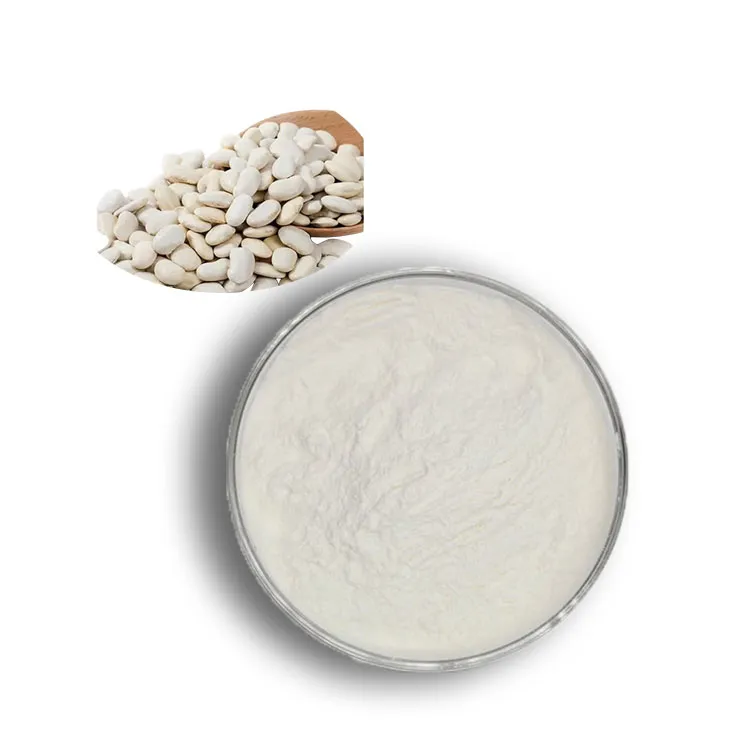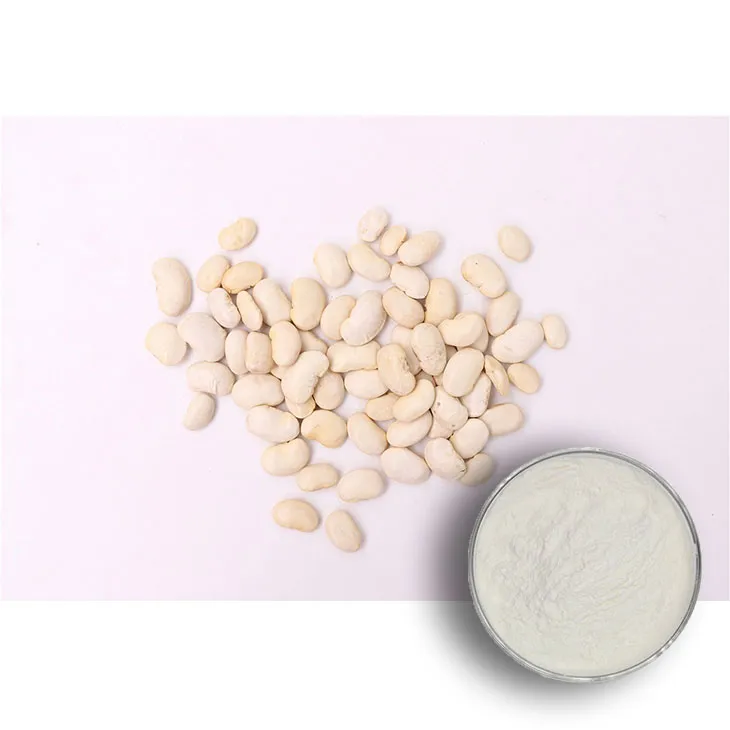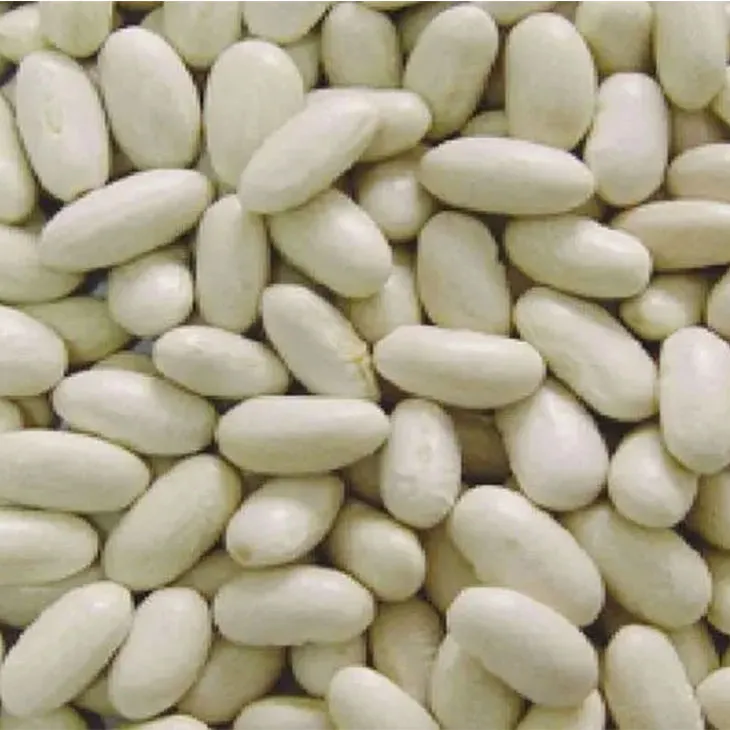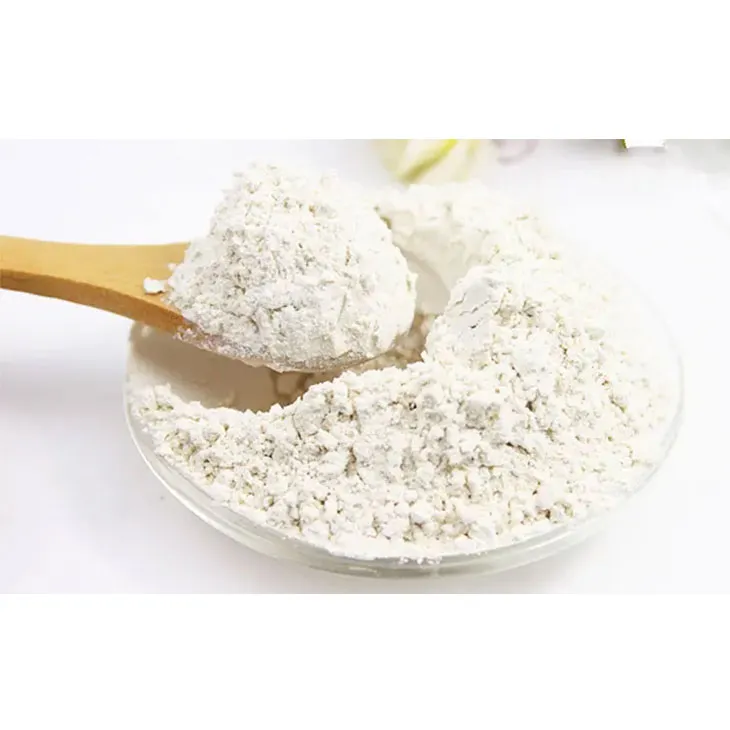- 0086-571-85302990
- sales@greenskybio.com
Five Efficacy of Kidney Bean Extract + Dosage, Side Effects
2024-11-12

1. Introduction
Kidney Bean Extract has been a subject of growing interest in the field of health and nutrition. Derived from the common kidney bean (Phaseolus vulgaris), this extract contains various bioactive compounds that may offer several potential health benefits. However, like any supplement, it is important to understand its proper dosage and be aware of any possible side effects.

2. Efficacy of Kidney Bean Extract
2.1 Blood Sugar Regulation
One of the significant efficacies of Kidney Bean Extract is its role in blood sugar regulation. The extract contains components that can interfere with the digestion and absorption of carbohydrates. For instance, it may inhibit certain enzymes such as alpha - amylase, which is responsible for breaking down starches into simple sugars. By doing so, it slows down the release of glucose into the bloodstream, preventing rapid spikes in blood sugar levels after a meal. This can be especially beneficial for individuals with diabetes or those at risk of developing diabetes.
2.2 Weight Management
Kidney bean extract may also contribute to weight management. As it affects carbohydrate digestion, it can potentially reduce the overall caloric intake from carbohydrates. Additionally, some studies suggest that it may increase feelings of fullness or satiety. This could lead to a decrease in food consumption and ultimately support weight loss efforts. Moreover, the extract may have an impact on the body's metabolism, although further research is needed to fully understand this aspect.
2.3 Cholesterol Reduction
There is evidence indicating that kidney bean extract can play a role in cholesterol reduction. It may act on the liver to influence cholesterol synthesis and metabolism. Specifically, it might help in reducing low - density lipoprotein (LDL) cholesterol, which is often referred to as "bad" cholesterol. By lowering LDL cholesterol levels, it can contribute to a healthier lipid profile and potentially reduce the risk of heart disease.
2.4 Digestive Health
The extract can also have positive effects on digestive health. It may promote the growth of beneficial gut bacteria. A healthy gut microbiome is essential for proper digestion, nutrient absorption, and overall immune function. Kidney bean extract, through its influence on the gut environment, can help maintain a balanced gut flora. Additionally, its ability to modulate enzyme activity related to digestion can enhance the overall digestive process.
2.5 Antioxidant Activity
Kidney bean extract exhibits antioxidant activity. It contains antioxidants such as phenolic compounds and flavonoids. These antioxidants are capable of neutralizing free radicals in the body. Free radicals are unstable molecules that can cause oxidative stress, which is associated with various diseases including cancer, heart disease, and neurodegenerative disorders. By scavenging free radicals, kidney bean extract can help protect cells from damage and maintain cellular health.

3. Dosage of Kidney Bean Extract
The appropriate dosage of kidney bean extract can vary depending on several factors, including the individual's health condition, age, and the specific product formulation. In general, when used as a dietary supplement for blood sugar regulation or weight management, a typical dosage may range from 500 to 1500 milligrams per day. However, it is crucial to follow the instructions provided on the product label.
For those using kidney bean extract for cholesterol reduction or digestive health, the dosage may also fall within a similar range. But again, it is always advisable to consult a healthcare provider, especially if one has pre - existing medical conditions or is taking other medications. They can provide personalized advice based on an individual's specific needs.

4. Side Effects of Kidney Bean Extract
4.1 Gastrointestinal Disturbances
One of the possible side effects of kidney bean extract is gastrointestinal disturbances. Some individuals may experience symptoms such as bloating, gas, or abdominal discomfort. This can be due to its effects on carbohydrate digestion and the gut environment. In most cases, these symptoms are mild and may subside as the body adjusts to the supplement. However, if the symptoms persist or become severe, it is necessary to discontinue use and consult a doctor.
4.2 Allergic Reactions
Although relatively rare, allergic reactions to kidney bean extract can occur. People with known allergies to kidney beans or related legumes may be at a higher risk. Allergic symptoms can range from mild rashes and itching to more severe reactions such as difficulty breathing or swelling of the face, lips, or tongue. If any signs of an allergic reaction are noticed, immediate medical attention should be sought.
4.3 Interaction with Medications
Kidney bean extract may interact with certain medications. For example, if a person is taking medications for diabetes, the combined use with kidney bean extract may lead to an excessive drop in blood sugar levels. Similarly, it may interact with medications for cholesterol or blood pressure. Therefore, it is essential to inform your healthcare provider about any supplements you are taking, including kidney bean extract, to avoid potential adverse drug - supplement interactions.

5. Conclusion
Kidney bean extract offers several potential health benefits, including blood sugar regulation, weight management, cholesterol reduction, digestive health promotion, and antioxidant activity. However, when using it, one must be cautious about the appropriate dosage and be aware of the possible side effects. Consulting a healthcare provider before starting to use kidney bean extract is highly recommended to ensure its safe and effective use in relation to an individual's specific health situation.
FAQ:
What are the five efficacy of kidney bean extract?
Kidney bean extract is often associated with several potential efficacies. Firstly, it may help in blood sugar regulation. Some components in it could potentially influence insulin sensitivity, thus having an impact on maintaining stable blood glucose levels. Secondly, it might be beneficial for weight management. It could potentially suppress appetite or affect the body's metabolism in a way that aids in controlling body weight. Thirdly, it may have a positive effect on cardiovascular health. For example, it could contribute to reducing blood lipid levels, such as cholesterol and triglycerides, which are important factors for heart health. Fourthly, it may possess antioxidant properties. Antioxidants can help the body combat oxidative stress caused by free radicals, which are associated with various diseases and aging processes. Fifthly, it might have some anti - inflammatory effects, which can be helpful in reducing inflammation in the body.
What is the recommended dosage of kidney bean extract?
The dosage of kidney bean extract can vary depending on various factors such as the form of the extract (e.g., powder, capsule), the purpose of use, and individual health conditions. In general, for dietary supplement use, it is often recommended to follow the instructions on the product label. However, typical dosages may range from a few hundred milligrams to a couple of grams per day. It is crucial to note that self - dosing without proper medical advice should be avoided, especially for those with pre - existing health conditions or those taking other medications.
Are there any side effects of kidney bean extract?
While kidney bean extract is generally considered safe for most people when taken as directed, there can be some potential side effects. Some individuals may experience digestive issues such as stomach upset, nausea, or diarrhea. In rare cases, allergic reactions may occur, especially in those who are allergic to kidney beans or related plants. Additionally, if taken in excessive amounts, it may lead to more severe side effects, such as interfering with normal body functions or interacting negatively with other medications. It is always important to consult a healthcare provider before starting any new supplement.
Can kidney bean extract be used by everyone?
No, kidney bean extract may not be suitable for everyone. People with certain medical conditions, such as kidney or liver diseases, should be cautious. Pregnant or breastfeeding women should also avoid using it without first consulting a doctor, as its safety for these groups has not been fully established. Also, those who are allergic to legumes may experience allergic reactions when taking kidney bean extract.
How does kidney bean extract regulate blood sugar?
Kidney bean extract may regulate blood sugar through multiple mechanisms. One possible way is by inhibiting certain enzymes involved in carbohydrate digestion. This can slow down the breakdown of complex carbohydrates into simple sugars, thereby reducing the rapid increase in blood sugar levels after a meal. Additionally, it may enhance insulin sensitivity in cells, allowing cells to more effectively take up glucose from the bloodstream. However, more research is still needed to fully understand these mechanisms.
Related literature
- The Role of Kidney Bean Extract in Metabolic Health"
- "Kidney Bean Extract: Efficacy, Safety, and Therapeutic Potential"
- "Investigating the Antioxidant Properties of Kidney Bean Extract"
- ▶ Hesperidin
- ▶ Citrus Bioflavonoids
- ▶ Plant Extract
- ▶ lycopene
- ▶ Diosmin
- ▶ Grape seed extract
- ▶ Sea buckthorn Juice Powder
- ▶ Fruit Juice Powder
- ▶ Hops Extract
- ▶ Artichoke Extract
- ▶ Mushroom extract
- ▶ Astaxanthin
- ▶ Green Tea Extract
- ▶ Curcumin
- ▶ Horse Chestnut Extract
- ▶ Other Product
- ▶ Boswellia Serrata Extract
- ▶ Resveratrol
- ▶ Marigold Extract
- ▶ Grape Leaf Extract
- ▶ New Product
- ▶ Aminolevulinic acid
- ▶ Cranberry Extract
- ▶ Red Yeast Rice
- ▶ Red Wine Extract
-
Gynostemma pentaphyllum extract
2024-11-12
-
Polygonum multiflorum extract
2024-11-12
-
Acai Berry Extract
2024-11-12
-
Yam Extract
2024-11-12
-
Rosemary extract
2024-11-12
-
Bitter Melon Extract
2024-11-12
-
Alfalfa Meal
2024-11-12
-
Polygonum Cuspidatum Extract
2024-11-12
-
Cocoa Extract
2024-11-12
-
Camu Camu Extract
2024-11-12





















